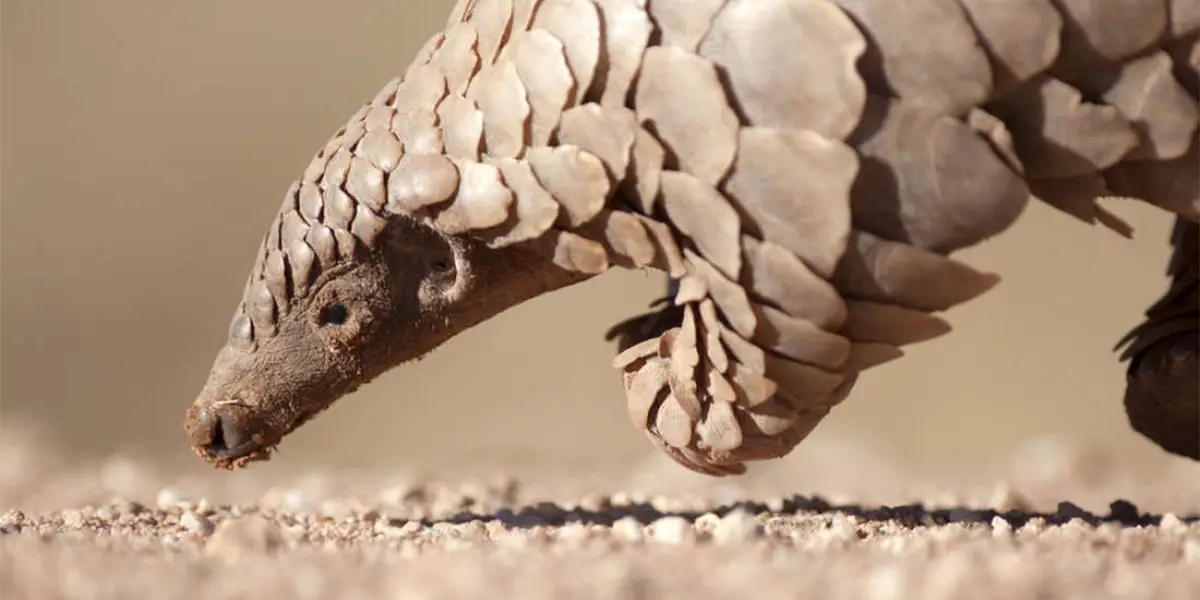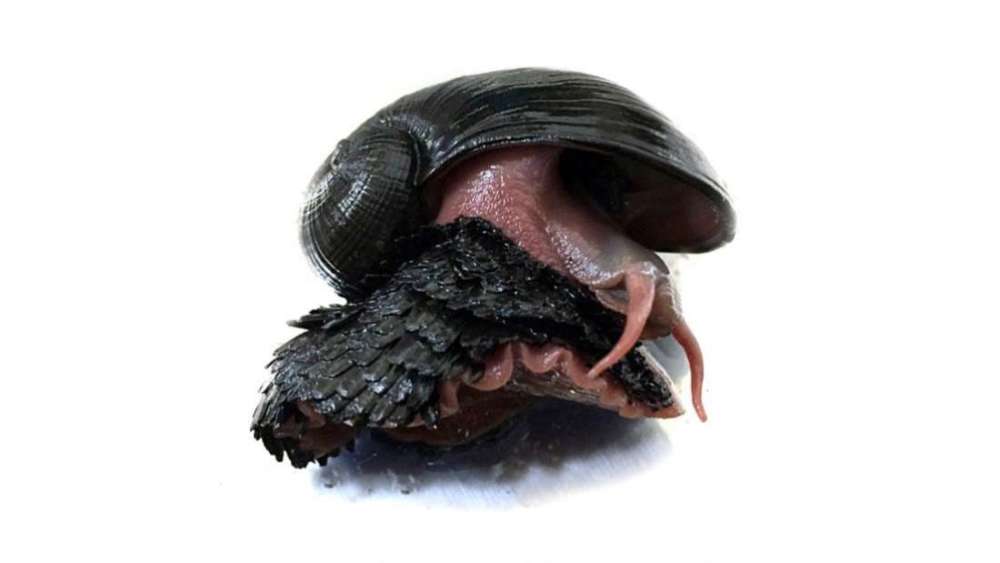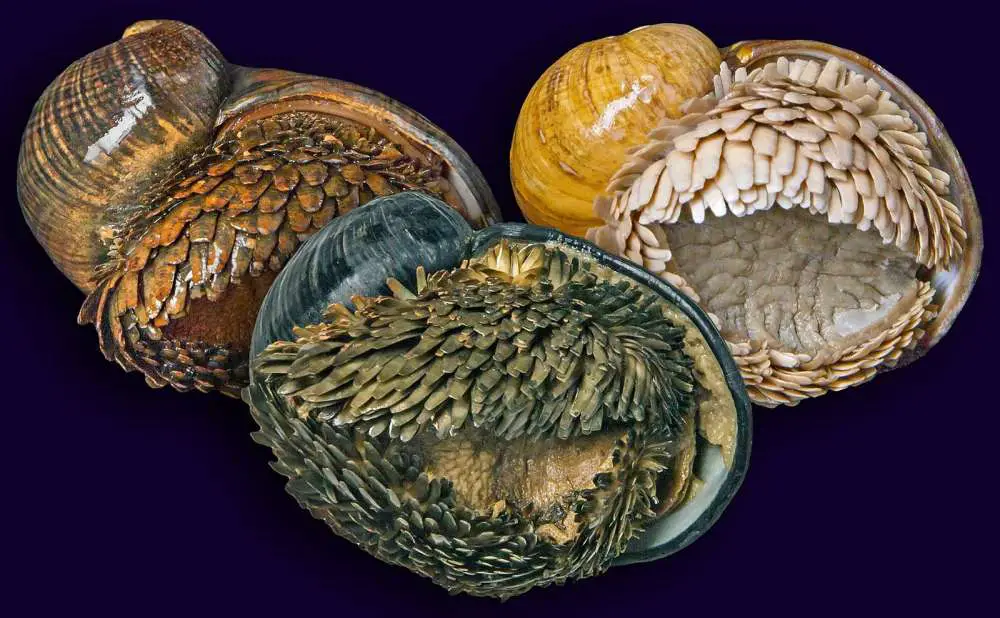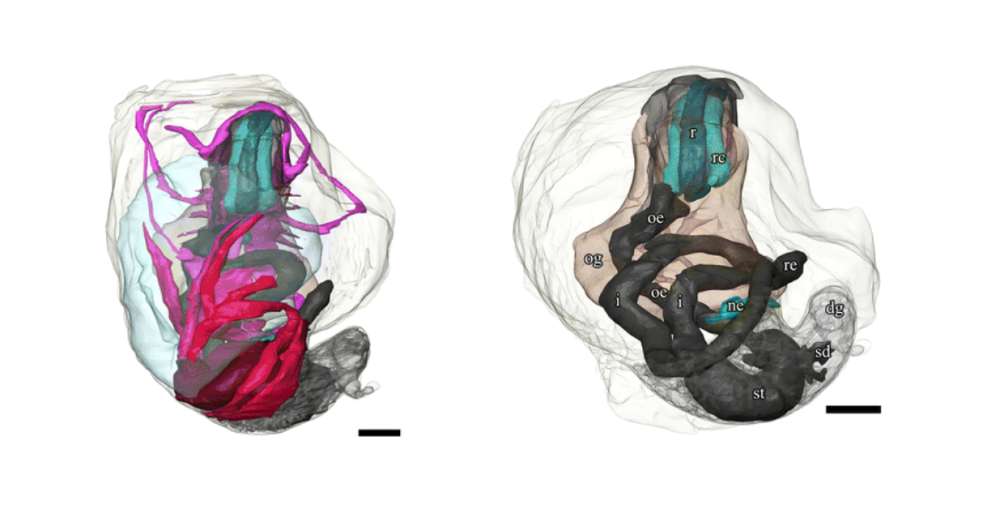This Iron Shell Snail Dubbed “Sea Pangolin” Threatened With Extinction From Deep-Sea Mining
Tags: opinion

We have destroyed our land resources and we are perhaps already across the point of no return. The ocean floor, the last pristine outpost of the planet is now in danger as the scrapping of the seabed and pollution from mining processes may wipe out entire species.
Also read: Plastic Is Everywhere, Even The Deepest Parts Of Our Planet!
The effect of deep-sea mining is a ghastly process that causes unprecedented harm to the sea bed that supports ocean life. It’s akin to using a gun to kill a fly, as it destroys a whole ecosystem of which we haven’t even started to know its range and depth.
 Image: Chong Chen
Image: Chong Chen
And now we face the prospect of losing the first species to the devil named deep-sea mining. The sea pangolin may acquire the sad distinction of being the foremost species to be driven to extinction by
deep-sea mining. Deep underwater hydrothermal vents challenged our understanding of deep ocean environments and even the origin of life.
The scaly snail gets its name because of the scaled outer layer that resembles a pangolin is an incredible creature. It has a shell made of iron and is found exclusively around thermal vents. It lives in and around the vents in the Indian Ocean, in depths of 2900 meters.
Also read: Incredibly Rare Deep-Sea Video Shows Shark Being Swallowed Whole [Watch]
The iron tags on its body are layered to protect it from predators. It falls under the global IUCN Red List, a powerful tool protecting rare and little-understood species. Deep-sea biologist Chong Chen explained to “Nature” how these animals were at the receiving end of the vicious assault on their habitat by deep-sea mining. Dr. J. Sigwart also published a paper about the consequences of deep-sea mining.
 Image: Chong Chen/Wikimedia Commons
Image: Chong Chen/Wikimedia Commons
The deep-sea vents are the natural habitat of the sea pangolins but now have acquired deep-sea mining licenses. This has resulted in some species, like the sea pangolin, that survive in the vicinity of the sea-bed to just disappear. Since such deep-sea vents cannot be replicated they are at danger. Even though these creatures are beyond the reach of normal scientists, they still ended up in the United Nations’ list.
 Image: Chong Chen, Jonathan T. Copley, Katrin Linse, Alex D. Rogers & Julia D. Sigwart/Wikimedia commons
Image: Chong Chen, Jonathan T. Copley, Katrin Linse, Alex D. Rogers & Julia D. Sigwart/Wikimedia commons
It is exasperating that while we are justifiably concerned about the atmosphere and climate changes, we ignore the oceans. But the world’s oceans are facing severe and irreversible damage. The world needs to wake up and put in place tighter environmental safeguards. The real assault is imminent but as of now, it is in the exploratory stage.
Leave Comment: